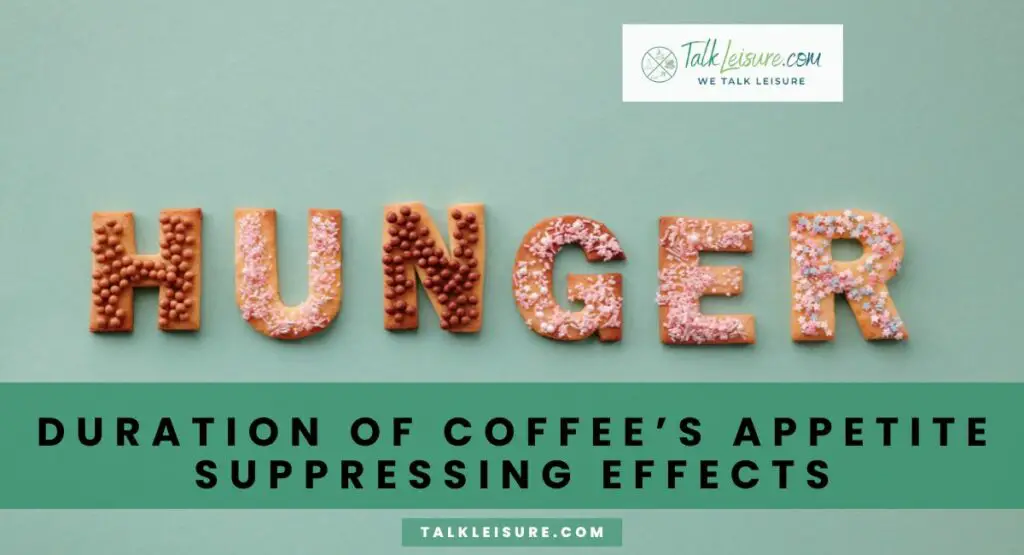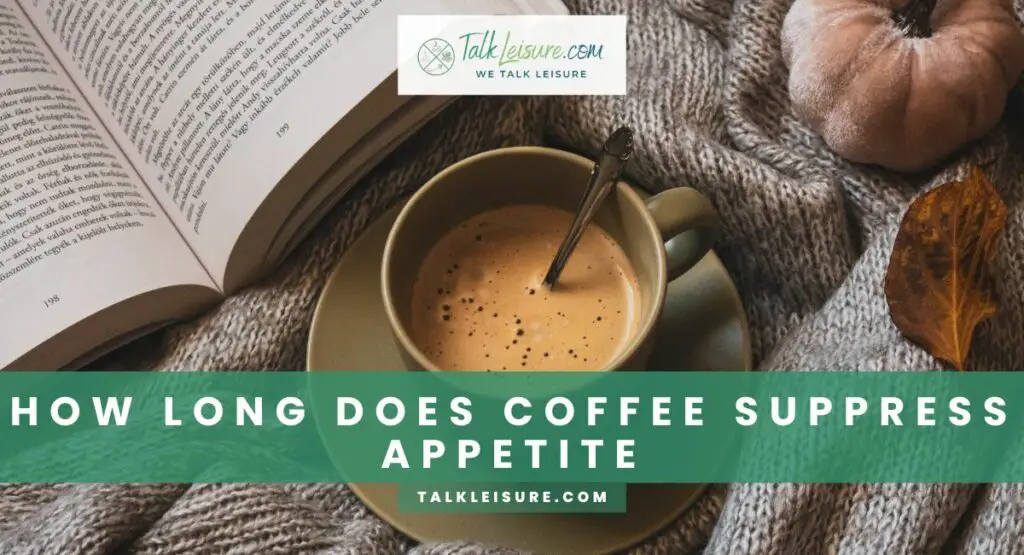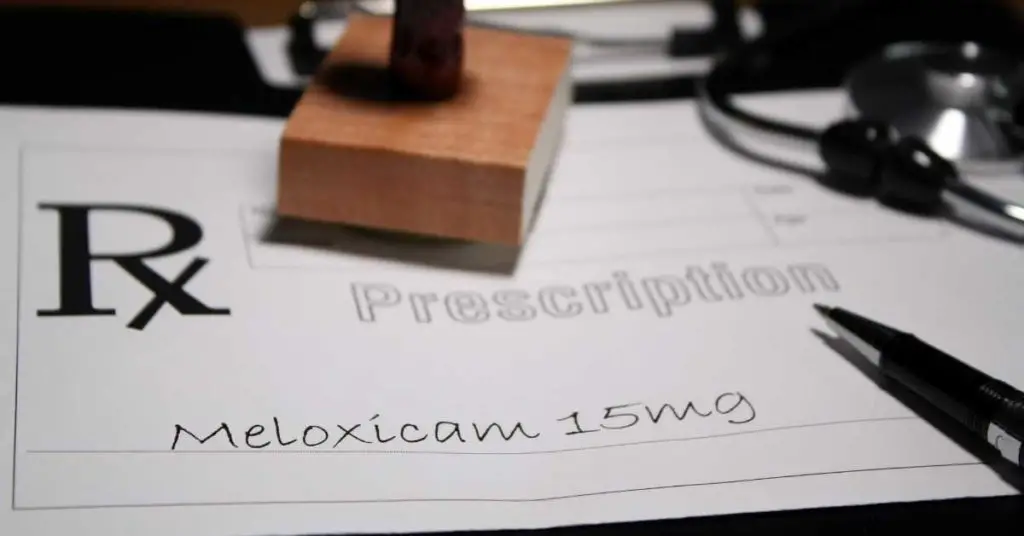Coffee can temporarily suppress appetite for some individuals, but the duration and effectiveness can vary from person to person. The appetite-suppressing effects of coffee are typically attributed to caffeine, which is a central nervous system stimulant.
As a coffee lover and someone who has experienced the effects of coffee on appetite, you may be wondering how long the appetite-suppressing benefits of coffee last.
Let’s delve into the details.
Why Does Coffee Make Me Hungry – Understanding the Link
Can Coffee Suppress Appetite
Coffee contains caffeine, a natural stimulant that affects the central nervous system.
When you drink coffee, the caffeine travels to your brain and blocks the receptors of adenosine, a neurotransmitter responsible for promoting sleep and relaxation.
By inhibiting adenosine, caffeine increases alertness and energy levels.
It also stimulates the release of dopamine and adrenaline, which enhance mood and boost metabolism.
One of the ways coffee suppresses appetite is by increasing thermogenesis, the natural process by which the body produces heat and burns calories.
This can lead to a temporary decrease in hunger and food cravings.
Impact on Hunger Hormones
Coffee also affects hunger hormones, namely ghrelin and leptin.
Ghrelin is known as the hunger hormone because it stimulates appetite, while leptin is responsible for signaling fullness and reducing hunger.
Studies have shown that coffee can decrease ghrelin levels, helping to suppress appetite and reduce food intake.
However, the appetite-suppressing effects of coffee are not long-lasting.
The duration can vary depending on factors such as your sensitivity to caffeine, the amount of coffee consumed, and individual metabolism.
On average, the effects of coffee on appetite may last between 1 to 3 hours.
It’s important to note that coffee should not be relied upon as a long-term appetite suppressant or weight loss solution.
While it may provide temporary relief from hunger, a balanced and nutritious diet should always be the foundation of healthy eating habits.
In conclusion, coffee can temporarily suppress appetite due to its caffeine content and impact on hunger hormones.
However, the duration of these effects is limited, typically lasting between 1 to 3 hours.
Remember to consume coffee in moderation and prioritize a well-rounded diet for overall health and wellbeing.
Duration of Coffee’s Appetite Suppressing Effects

Coffee lovers rejoice!
If you’re looking to curb your appetite and manage your weight, your morning cup of joe might just help you out.
Coffee has long been known for its energizing properties, but its ability to suppress appetite is also worth noting.
Let’s take a closer look at the duration of coffee’s appetite suppressing effects.
Immediate Effects
When you drink a cup of coffee, the caffeine it contains stimulates the release of hormones such as adrenaline and dopamine.
These hormones can increase alertness, elevate mood, and reduce feelings of hunger.
The appetite suppressing effects of coffee can be felt as quickly as 15 minutes after consumption and can last for up to 3 hours.
This immediate effect can be especially beneficial if you’re trying to resist snacking between meals or control portion sizes during a meal.
Short-Term Effects
The appetite suppressing effects of coffee can also extend beyond the immediate timeframe.
If you regularly consume coffee throughout the day, it can help keep your appetite in check and reduce cravings.
However, it’s important to note that the effects may vary among individuals.
Factors like body weight, tolerance to caffeine, and type of coffee consumed can impact how long the appetite suppressing effects last.
Generally, the effects can persist for a few hours, providing you with a temporary sense of fullness and reduced desire to eat.
Long-Term Effects
While coffee can have short-term appetite suppressing effects, it’s worth mentioning that relying solely on coffee for weight management is not recommended.
Over time, your body can build a tolerance to the appetite suppressing effects of coffee, resulting in a decrease in its effectiveness.
Additionally, excessive consumption of coffee can lead to other health issues and disrupt sleep patterns, which can indirectly affect appetite control.
It’s best to combine coffee consumption with a balanced diet, regular exercise, and other healthy lifestyle habits for long-term weight management.
Coffee can have both immediate and short-term appetite suppressing effects due to its caffeine content.
However, relying solely on coffee as a weight management strategy is not advisable in the long run.
It’s important to incorporate other healthy habits into your routine for sustainable results.
So, go ahead and enjoy your cup of coffee, but remember to prioritize overall well-being for optimal health.
Exactly How Does Coffee Suppress Your Appetite?
Factors Affecting the Duration of Coffee’s Appetite Suppressant Properties
Type and Quality of Coffee
The type and quality of coffee can play a significant role in the duration of its appetite suppressant properties.
Different coffee beans have varying levels of compounds, such as chlorogenic acid, that are responsible for reducing hunger.
Darker roasts tend to have lower levels of this compound compared to lighter roasts.
Therefore, if you are looking for a longer-lasting appetite suppressant effect, opting for lighter roasts or coffee made from beans with higher chlorogenic acid content might be beneficial.
Caffeine Content
Caffeine is a natural stimulant found in coffee that can help suppress appetite temporarily.
Higher caffeine content in your coffee can lead to a more pronounced appetite suppression effect.
However, the duration of this effect might vary depending on your individual tolerance to caffeine.
Some people may experience a shorter duration of appetite suppression if they regularly consume high amounts of caffeine, as their bodies become more tolerant to its effects over time.
Individual Differences
Individual differences, such as metabolism and sensitivity to coffee, can influence the duration of its appetite suppressant properties.
Each person’s body reacts differently to coffee, and factors like age, weight, and overall health can affect how long the appetite suppression effect lasts.
Additionally, individuals with certain medical conditions or taking specific medications may experience variations in the duration of coffee’s effects on hunger.
Understanding these factors can help you make informed decisions when using coffee as an appetite suppressant.
If you are seeking longer-lasting effects, choosing a coffee with high chlorogenic acid content and moderate caffeine levels may be beneficial.
However, it’s essential to remember that coffee’s appetite suppressant properties are temporary and may not substitute for a balanced diet and healthy lifestyle.
Overall, the duration of coffee’s appetite suppressant properties can be influenced by the type and quality of coffee, caffeine content, and individual differences.
By considering these factors, you can maximize the potential benefits of using coffee as a tool to manage your appetite.
Coffee vs Other Appetite Suppressants

Comparing Coffee to Prescription Medications
When it comes to suppressing appetite, coffee might not be the first thing that comes to mind.
However, studies have shown that caffeine found in coffee can have appetite-suppressing effects similar to some prescription medications.
This is because caffeine stimulates the central nervous system, which can help reduce feelings of hunger.
One notable prescription medication used as an appetite suppressant is phentermine.
It works by decreasing appetite and increasing feelings of fullness.
While phentermine can be highly effective, it also comes with potential side effects such as increased heart rate and blood pressure, insomnia, and dry mouth.
On the other hand, coffee, when consumed in moderation, is generally safe and has a lower risk of side effects.
Comparing Coffee to Natural Appetite Suppressants
Coffee can also be compared to natural appetite suppressants, such as green tea and fiber-rich foods.
Green tea contains a compound called epigallocatechin gallate (EGCG), which has been found to help suppress appetite and increase fat oxidation.
Similarly, foods high in fiber, such as fruits, vegetables, and whole grains, can help you feel fuller for longer and reduce overall calorie intake.
One advantage that coffee has over natural appetite suppressants is convenience.
You can easily find coffee at almost any cafe or grocery store, making it accessible whenever you need a little appetite control.
Additionally, coffee is a beverage that many people enjoy and incorporate into their daily routine, making it a more enjoyable option compared to other natural appetite suppressants.
It’s important to note that while coffee can help suppress appetite, it should not be relied upon as the sole method for weight loss.
It’s still crucial to maintain a balanced and healthy diet, exercise regularly, and listen to your body’s hunger and fullness cues.
Additionally, individuals who are sensitive to caffeine or have certain medical conditions should consult with a healthcare professional before incorporating coffee or any appetite suppressant into their routine.
In conclusion, coffee can be an effective appetite suppressant when consumed in moderation.
It can be compared to prescription medications and natural appetite suppressants in terms of its ability to decrease feelings of hunger and increase satiety.
However, it’s important to remember that coffee should be part of a comprehensive weight loss plan and should not be relied upon as the sole method for controlling appetite.
Tips for Maximizing Coffee’s Appetite Suppressing Effects

Optimal Timing of Consumption
When it comes to using coffee as an appetite suppressant, timing is everything.
Drinking a cup of coffee first thing in the morning can help curb your hunger and set a healthy tone for the day.
The caffeine in coffee stimulates the nervous system and can reduce appetite temporarily.
This can be especially helpful if you are trying to control your calorie intake or manage weight.
Another ideal time to have a cup of coffee is before a workout.
Research suggests that caffeine can enhance exercise performance and improve fat oxidation.
By having a cup of coffee 30-60 minutes before your workout, you can potentially reduce your appetite during and after exercise.
Pairing Coffee with Balanced Meals
To make the most of coffee’s appetite-suppressing effects, it’s important to pair it with balanced meals.
Combining coffee with protein-rich foods can promote feelings of satiety and help you stay full for longer.
Protein takes longer to digest, so incorporating it into your meals can help control hunger and prevent overeating.
Additionally, adding healthy fats to your coffee can further enhance its appetite-suppressing benefits.
Consider adding a splash of almond milk, coconut oil, or grass-fed butter to your coffee.
These healthy fats not only provide a creamy texture but can also help slow down the emptying of your stomach, keeping you satisfied for a longer period.
Remember, while coffee can be a helpful tool in managing appetite, it’s important to listen to your body’s signals and consume a well-balanced diet.
Too much caffeine or relying solely on coffee for weight management may lead to negative health consequences.
Moderation is key.
By incorporating these tips into your routine, you can effectively harness coffee’s appetite suppressant effects to support your health and wellness goals.
Potential Side Effects and Risks
Sleep Disruption
When it comes to coffee and appetite suppression, one potential side effect is sleep disruption.
As a coffee lover myself, I know that while a cup of joe can give you an energy boost, it can also interfere with your sleep patterns if consumed later in the day.
And let’s face it, when we don’t get enough sleep, our hunger hormones can go haywire, leading to increased cravings and a disrupted appetite.
So, if you’re sensitive to caffeine or have trouble sleeping, it’s best to avoid drinking coffee in the late afternoon or evening to ensure a good night’s rest and maintain a healthy appetite.
Increased Heart Rate
Another potential side effect of coffee consumption is an increased heart rate.
Coffee contains caffeine, a stimulant that can temporarily raise your heart rate.
While this may not directly impact your appetite, it can leave you feeling jittery or anxious, which might affect your ability to eat.
Additionally, an increased heart rate can lead to dehydration, which can sometimes be mistaken for hunger.
So, if you notice that your heart rate is elevated after consuming coffee, it may be a good idea to monitor your intake and opt for decaffeinated options or herbal teas to avoid any unwanted effects on your appetite.
Psychological Effects
Psychological effects of coffee can also play a role in appetite suppression.
Many people rely on coffee as a pick-me-up or as a means to boost their mood.
While this can be beneficial in some situations, it’s important to recognize that using coffee as a crutch for emotional well-being may lead to a skewed relationship with food.
If you find yourself depending on coffee to suppress your appetite or regulate your emotions, it may be worth exploring healthier coping mechanisms or seeking guidance from a healthcare professional.
In conclusion, while coffee can temporarily suppress your appetite due to its caffeine content and potential effects on sleep and heart rate, it’s essential to be mindful of the potential side effects and risks.
Monitoring your caffeine intake, being aware of your sensitivity to caffeine, and listening to your body’s hunger signals are key to maintaining a healthy and balanced appetite.
As with any dietary or lifestyle changes, it’s always best to consult with a healthcare professional to address any individual concerns or considerations.
Conclusion
Coffee, primarily due to its caffeine content, can offer a short-term suppression of appetite for some individuals.
However, its effectiveness varies from person to person and may diminish over time with regular consumption.
While coffee can be a helpful tool for appetite management, it’s crucial to use it in moderation to avoid potential side effects.
A balanced diet and healthy lifestyle remain essential for long-term appetite control and overall well-being.
Consulting a healthcare professional for personalized advice is always a wise choice.
Frequently Asked Questions
How does coffee suppress appetite?
Coffee contains caffeine, a natural stimulant that can temporarily reduce feelings of hunger by affecting certain hormones and neurotransmitters in the body.
How long does the appetite-suppressing effect of coffee typically last?
The appetite-suppressing effect of coffee can vary from person to person. On average, it may last for 1 to 4 hours after consumption.
Is the appetite-suppressing effect of coffee the same for everyone?
Adding cream or sugar to coffee may dilute the appetite-suppressing effect of caffeine. Additionally, the added calories from cream or sugar could contribute to increased overall caloric intake.No, individuals may have different responses to coffee. Some people may experience a noticeable reduction in appetite, while others may not experience the same effect.
Does the type of coffee or brewing method affect its appetite-suppressing properties?
The caffeine content can vary depending on the type of coffee bean, roast, and brewing method. Generally, a stronger cup of coffee with higher caffeine content may have a more pronounced appetite-suppressing effect.
Are there any potential side effects or risks associated with using coffee to suppress appetite?
While moderate coffee consumption is generally safe for most people, excessive intake can lead to side effects like jitteriness, increased heart rate, and insomnia. It’s important to consume coffee in moderation.
Can regular coffee consumption lead to a long-term reduction in appetite?
Regular coffee consumption may lead to some level of tolerance to the appetite-suppressing effects of caffeine over time. This means that the same amount of coffee may have a diminished effect on appetite suppression with repeated use.
Is coffee a sustainable or recommended method for appetite control in the long term?
Relying solely on coffee for appetite control is not recommended as it’s essential to maintain a balanced and nutritious diet. Coffee should be consumed as part of a healthy lifestyle and not used as a primary appetite-suppressing strategy.
Can individuals with certain medical conditions safely use coffee for appetite control?
Individuals with certain medical conditions, such as heart conditions, anxiety disorders, or gastrointestinal issues, may need to limit their caffeine intake. It’s important to consult with a healthcare professional before using coffee for appetite control.
Are there alternative methods for appetite control that do not involve coffee?
Yes, there are various natural appetite-suppressing foods and habits, such as consuming high-fiber foods, staying hydrated, practicing mindful eating, and getting regular exercise.
Best Wishes!











